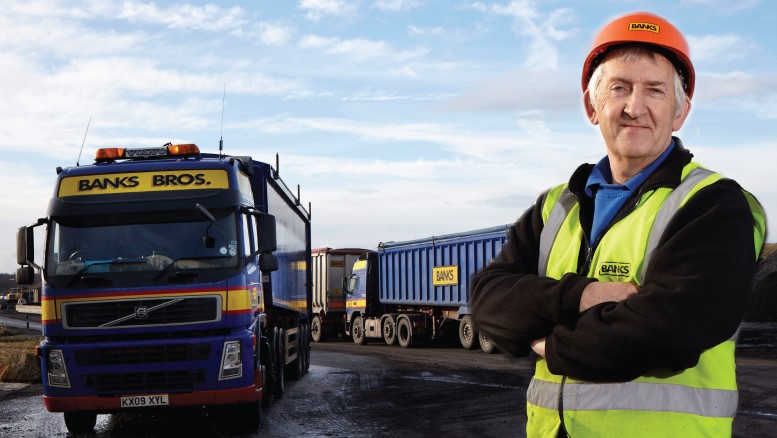
Even in these ‘green’ times, the UK still uses five million tonnes of coal a year. It is used, still, for power generation, for cement manufacture, for iron and steel production, for domestic heating and, of course, for heritage transport – railway locomotives, traction engines and the like.
As Rail Insider reported back in September 2019, government plans to curtail the burning of coal have been causing concern to heritage railways and other transport groups. As part of its crackdown on pollution, it had published a policy paper on its Clean Air Strategy in January 2019. In it, the government made several statements. On the subject of transport: “We will reduce emissions from rail and reduce passenger and worker exposure to air pollution. By the spring 2019, the rail industry will produce recommendations and a route map to phase out diesel-only trains by 2040.”
And on action to reduce emissions at home: “Burning wood and coal in open fires and stoves makes up 38 per cent of the UK’s primary emissions of fine particulate matter. Harmful sulphur dioxide (SO2) is emitted by coal burned in open fires.”
It then continued: “We will legislate to prohibit the sale of the most polluting fuels.”
However, importing five million tonnes a year from the USA and Russia also has emissions implications. The argument goes, if the country still needs coal, shouldn’t it be mined here rather than imported?
New coal mine?
In response, the government is now deciding whether or not a new UK coal mine should open. The proposed new opencast mine, at Highthorn in Northumberland, will be the UK’s biggest, producing three million tonnes a year over the next three to five years, over half of the UK’s requirement.
Getting the new mine approved has been a hard slog for North East family-owned business, Banks Mining. Northumberland County Council gave its planning application unanimous approval in July 2016, only for the decision to subsequently be called in for review by the then Secretary of State Rt Hon Sajid Javid MP.
A public inquiry into the proposal was then held in the summer 2017, after which the government appointed planning inspector said that Highthorn was “in the national interest” and should be approved.

Mr Javid overruled his own inspector and refused planning permission in March 2018, but the High Court quashed the Secretary of State’s unlawful decision in the following November, stating that there were serious errors in the legal basis on which Mr Javid had made his decision. The case went back to the Secretary of State for a fresh decision and low lies with the current Secretary of State, Rt Hon Robert Jenrick MP.
A new decision that was originally expected from the government in March last year, but, despite subsequent government promises, it has not been issued, resulting in a delay of four and half years since the application was originally submitted in October 2015.
Finally, a letter sent on 17 March 2020 to Banks Mining’s solictor by the government’s legal department on behalf of Rt Hon Robert Jenrick MP, Secretary of State for Housing, Communities & Local Government, stated: “We are now able to confirm that a recommendation has been made to the Secretary of State, which he will consider in due course.
“Although no commitment can be given, particularly in light of the fact that the Secretary of State’s main focus is currently and understandably on the situation in relation to Covid-19, it is hoped that our clients will be able to communicate to you the outcome of the Secretary of State’s consideration within 3 weeks of the date of this letter.” Which would have been 7 April 2020.
Writing this report on 12 April, no decision has yet been made public.
Heritage railways
The heritage steam industry is particularly interested in a positive decision. “The imported coal needed for steel and cement production is completely unsuitable for steam engines,” said Steve Oates, CEO of the Heritage Railway Association. ‘Steam power needs lump coal, which will continue to be available if the government allows the new mine to go ahead.”

Heritage Railway Association.
The concern is that, should the government decide against the proposal, UK steam coal supplies will dwindle and vanish. England’s last mine producing coal used for heritage rail will cease production in May. The heritage rail sector uses 26,000 tonnes of coal a year, producing 0.02 per cent of the UK’s CO2 emissions.
“Heritage railways will have to source the kind of coal it needs from overseas, at increased environmental cost, potentially at prices many railways will simply not be able to afford,” Steve Oates continued. “Heritage railways take a very responsible approach to environmental issues. Every possible measure is taken to reduce burn, establish environmental policies, and implement measures to mitigate impacts.”
The Heritage Railway Association has been lobbying Westminster for support and has been reassured that the government has no desire to see the end of heritage steam.
“We support the coal industry in seeking new permissions to mine in the UK. It makes no sense to create huge increases in greenhouse gas emissions by importing coal, and major increases in cost,” Oates concluded.
Trade union support
Jerry Swain, trade union Unite’s national officer for construction, has highlighted the government’s recent support for the British Steel blast furnace at Scunthorpe as an indication of the importance that it places on the UK retaining the ability to manufacture its own raw steel for use in major national infrastructure projects.

In a letter to Rt Hon Robert Jenrick MP, Secretary of State For Housing, Communities and Local Government, he said: “The UK requires around five to six million tonnes of coal, per annum, to manufacture steel, cement and for other industrial processes such as carbon fibre production, as well as powering heritage railways, traction engines and steam pumping houses.
“As it is, the vast majority of coal needed by the UK is already imported from Russia, Colombia, the USA and Australia, and importing coal such huge distances is clearly causing more damage to the environment than using locally mined coal.
“It is also worth noting that the UK Government has been effectively propping up the British Steel blast furnace at Scunthorpe…(which)…clearly demonstrates the importance that it places on the UK retaining the ability to manufacture its own raw steel, in order to support the building of major national infrastructure projects
“The UK steel industry needs its own associated indigenous supply chain, creating many more jobs in local communities, and we urge you to approve this planning application.”

Banks Mining has stated that the Highthorn scheme would create at least 100 well-paid, full-time jobs on the site, invest £87 million into the Northumberland economy, keep a total of £120 million within the UK economy by not requiring the importation of three million tonnes of coal that would otherwise come from overseas suppliers, and make supply chain contracts worth a total of £48 million available to locally-based businesses.
Not everyone is in favour of the proposal. The Save Druridge campaign, named after the bay alongside the Highthorn site, enlisted the help of TV personality Bill Oddie in 2016 to raise public awareness to its objections. However, the group’s website has now not been updated for a year.


Heritage railways are now suffering a shutdown of unknown length because of the Covid-19 outbreak and are desperately raising money from donations to keep them afloat. When they eventually reopen, coal supply will be the no. 1 issue for them. It makes little sense importing coal from the other side of the world, much of it not really suitable for railway use. A UK mine is needed and the environmental groups need to be persuaded that the heritage railway sector is an important part of our economy which has taken years to build up.
The people involved who do not want to see our Heritage Railways continue for future generations are bias with their heads buried in the sand. Self centred and selfish. You don’t have to be a brilliant mathematician to work out the facts involved. Common Sense prevails. We need GOOD COAL to continue supplying our Heritage Steam network. The amount of time, effort and monies involved could be wiped out. It does not bear thinking about.